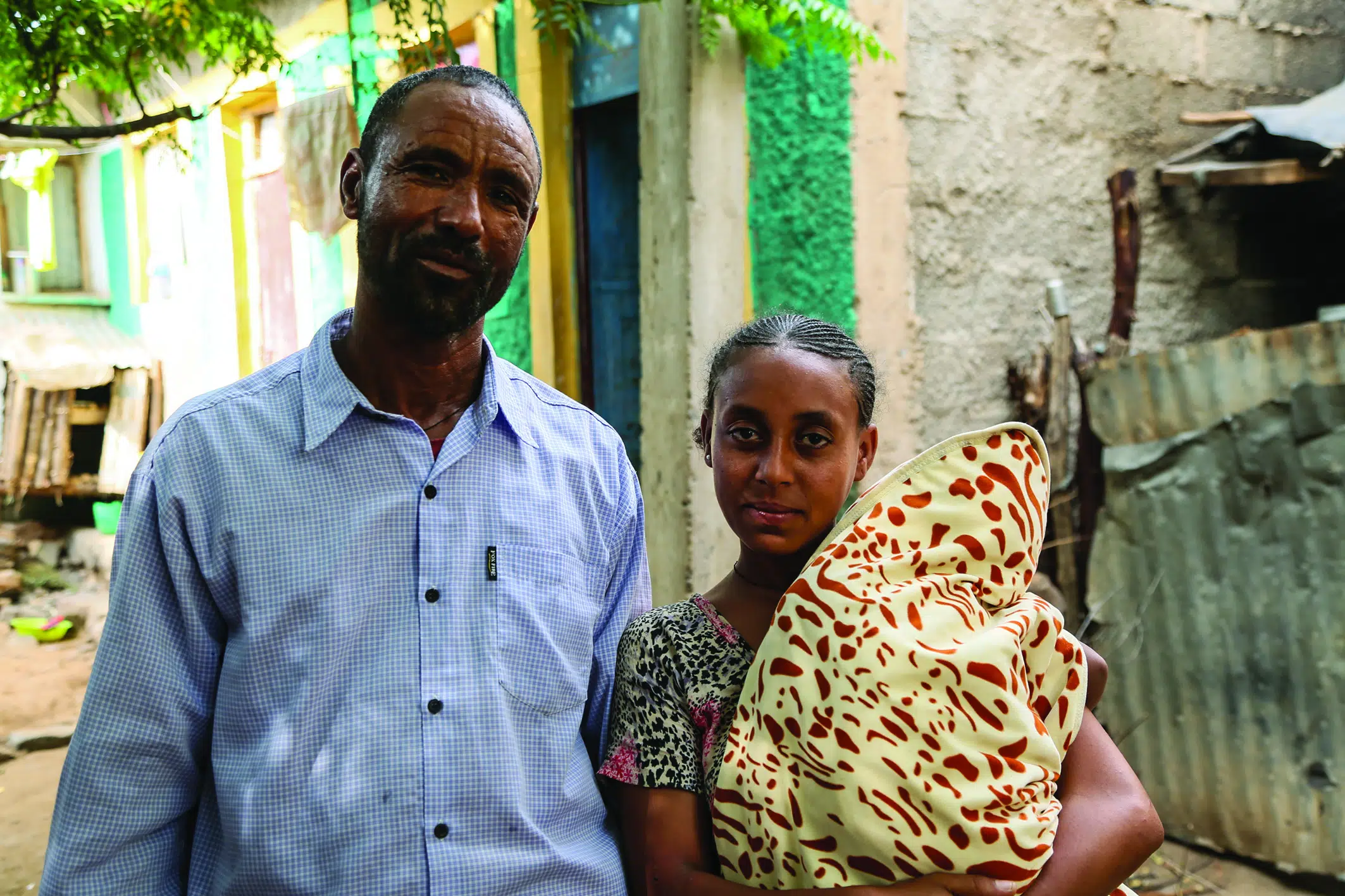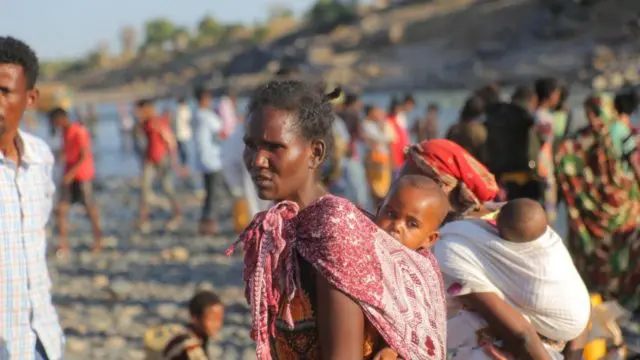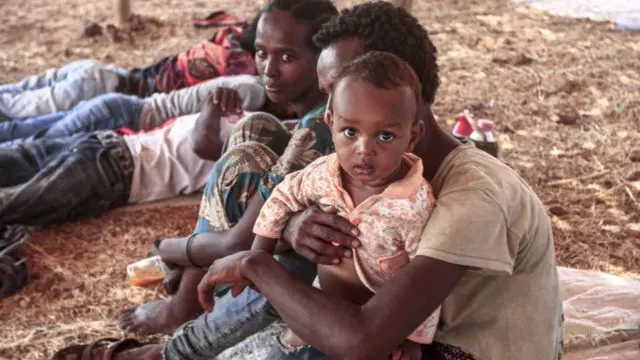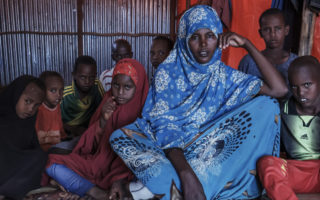
Salam, 20, pictured with her father-in-law, Tesfay. “I have no other relatives. They are the ones keeping me safe.” ©UNHCR/Olga Sarrado Mur
Salam was forced to flee her hometown in northern Ethiopia as clashes reached the area.
She fled with her family and found refuge in her father-in-law’s home in Tanqa Milash, residing in a room with just a mattress.
“I have no other relatives. They are the ones keeping me safe,” Salam explains.
Her father-in-law, Tesfay, generously opened his door and his home to Salam and her family despite the fact he is facing his own struggles. Tesfay, who is a farmer, lost his animals and tools during the first months of war. His savings are depleting.
“We are sharing what we have. Sometimes we only eat injera with spices. The situation is very difficult, let alone to help others. They are my blood. I cannot leave them alone,” he explains.
November 2022 marks two years since the start of the conflict in the Tigray region of northern Ethiopia, which subsequently spread into the neighbouring regions of Afar and Amhara. This ongoing conflict, which has seen renewed clashes recently, is continuing to impact the lives of Salam, Tesfay and millions of others in the region.
The security situation on the ground remains complex, impeding the effective and immediate delivery of aid to those affected by this ongoing crisis. Shortages of cash, fuel and interruptions to electricity and telecommunication services have had a negative impact on delivery of protection and assistance, as well as the ability for UNHCR and its partners to undertake field missions.
In late 2021, UN humanitarian flights into Tigray were suspended – they now operate on a limited basis. Road access into Tigray has also been a challenge since late last year. In March 2022, the Ethiopian government declared an immediate indefinite humanitarian truce and ceasefire to allow aid into the northern regions of the country – but the situation on the ground remains volatile with fresh fighting emerging in late August 2022 shattering the recent truce.
Earlier in the year, UNHCR partners resumed operations in the Mai Ani and Adi Harush camps, with child-friendly space activities, child welfare committees and children’s clubs established in both camps. Elsewhere, refugees with special needs are provided with protection services, including psychosocial support. To help further enhance social empowerment and build savings and credit capacities of refugee women, UNHCR and partners established a program to allow them to access small loans without collateral.
In neighbouring Sudan, Freweyni is among more than 70,000 people who crossed over the border as a result of the conflict. To supplement the humanitarian assistance she receives, she serves Habesha coffee at her coffee shop in Tunaydbah settlement in Sudan. Her clientele includes both refugees and locals with her host. She uses the profits to support unaccompanied children whom she is taking care of and other women who need her support.
As the conflict wears on, UNHCR appeals for an immediate cessation of hostilities. Renewed fighting will only cause more suffering to those who have already suffered far too much for too long. UNHCR and its partners remain committed towards delivering support to those whose lives have been severely impacted within and beyond northern Ethiopia’s borders.





